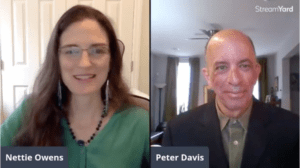
The measure of productivity is the total output divided by the total input. For example, if your organization produces $100,000 in goods or services with five employees, then the productivity is $20,000 per employee. As usual, you can massage this number depending on the perspective you take to create the equation.
And yes, I’ve spent the last few Saturdays bringing back some productivity basics that we all need reminders about in order to make sure our business is moving forward as we want.
But I want to caution you about something – and that’s Toxic Productivity.
“Toxic Productivity is attempting to increase output and, therefore, productivity without concern for the effect on the inputs, namely the time and energy of workers.”
If you’re saying, “No workers! No problem!” – that’s just not true! That worker may just be YOU, pounding away in your home office while your family and team or business bustle around you.
Wondering what toxic productivity looks like? If you find that you are exhausted at the end of the day with diminishing motivation and output, it’s time to look at if you have moved from productivity to toxic productivity.
I look for three markers:
- A drop in production while time spent working remains the same or increases
- Lack of motivation to continue the work
- Increased demands on those around you or your team combined with frustration for their output (or lack thereof)
If you see these red flags, it’s time to reassess and determine if your productivity has moved into the toxic realm.
Right now, I want you to take a moment and honestly reflect on your productivity. Are you experiencing these red flags?
If so, there is something you can do about it.
Remind yourself:
- Unlike machines, we cannot be “on” all the time. If you notice the law of diminishing returns appearing in your work, then it’s time to stop and take a break. While it can feel like pushing through to get that project done is the best use of your time and energy because of a deadline – it does not come without consequences. You are more likely to make mistakes, to have the work take longer, or to miss creative opportunities that would improve the outcome. Your brain shifts into its primal mode of ‘just staying alive and not the advanced mode where the best decisions are made.
Taking a break can look like: taking a nap, going for a long walk, stopping to eat and enjoy a meal, spending non-work time with friends or family, reading a book for pleasure, meditating, working out, going outside, drinking a glass of water, etc. These are productive rest activities that recharge your brain.
- If you find yourself unmotivated to do the work, it’s possible that you have come off course focusing so much on the details that the bigger picture has been lost.
Stopping to refocus on the vision and mission of your work and assessing if the tasks you are completing are in alignment with that will help to reinvigorate your motivation. In addition, tracking the effectiveness of your work can help you see what work is contributing to the goal outcome and what is not.
- Moving from collaboration into reaction is a defensive survival mode. Our brain is doing the best job it can to protect us by trying and failing to latch onto control of a situation. It’s likely the ‘fear’ alarm system, which is meant to keep us safe, has been triggered.
If you find yourself pushing harder to meet a goal and becoming frustrated or agitated with those around you because it feels like they are not working as hard as you are, this is a red flag that you have moved into the toxic productivity realm. In the end, the only person you have control over is yourself and your communication.
Stop to review your expectations and the deadlines you have set for yourself and others. Do they make sense? How well have you communicated the expectations and allowed for communication back to you? I’ll say it again here – communication is key.
Know that toxic productivity is not irreversible. It simply takes awareness to shift back into a healthier mode that, in the end, will yield better outcomes, faster.
Don’t spend your time living by the motto: I’ve got dreams worth more than my sleep (Unknown) – because that’s toxic productivity at its best. Instead, find that productive balance that works for you – and watch your dreams still come to fruition.
Please comment below. I would love to hear from you.














No comments yet.